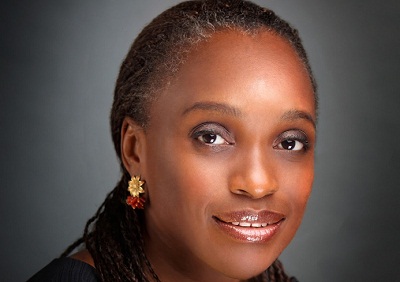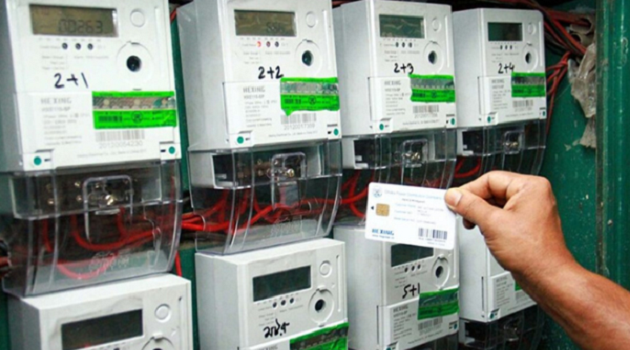General News
OPC to Deploy 30, 000 ‘Foot Soldiers’ to protect Oil Facilities

Frederick Fasehun, President of the pan-Yoruba socio-cultural organization, Oodua People’s Congress (OPC), has committed the organization towards partnering with relevant governmental organization in protecting the nation’s vast network of oil pipelines.
Dr. Fasehun, expressed worry over the high spate of attacks and vandalisation of the oil pipelines across the country stated that the OPC has the capacity to provide security for the oil facilities.
“The problem persists because agencies saddled with the responsibility of monitoring and securing the pipelines, have compromised. That is why experts and observers alike strongly recommend that the government must think outside the box for the ultimate solution,’’ Fasehun stated.
Fasehun who spoke during a courtesy visit to Kingsley Kuku, special adviser to President Goodluck Jonathan on Niger Delta Affairs and Chairman of the Presidential Amnesty Committee, said his organization has the discipline to muster resources to keep the oil facilities secured using the experience garnered in bringing peace to the South West flash points.
“We promise to dispense that same level of dedication, discipline and efficiency that today guarantees safety and security for lives and properties in our home zone. We promise zero-tolerance for pipeline vandals and pipeline vandalism,” said Fasehun.
Outlining the OPC strategies to curb the ugly trend in the South West geo-political zone, Fasehun said: “We have outlined strategies and equipment required for securing the entire pipeline network in the South-West. And by the grace of God and Federal Government, pipeline vandalism within the (South West) zone will be completely wiped out in the next 12 months.”
The OPC leader said the organization will put together a 30, 000-man strong team within a short time when the given the green light on the project.
“We will be pulling well over 30,000 foot soldiers into this assignment. That means a minimum of 30,000 jobs for a minimum Nigerians. We shall be working in synergy with the NNPC, the PPMC, the Police, the Navy, the SSS and allied security agencies to ensure that we wipe out the problem of pipeline vandalism once and for all,” Fasehun stated.
Dan Alabra, Special Assistant on Media and Communications at the Amnesty office told Nigerian CommunicationsWeek that the OPC leaders’ ideas on security for the oil pipelines gives sufficient hope for the economic development of the zone and the nation at large.
He noted that Kuku will be presenting the OPC agenda before the President.
In recent times, oil thieves have invaded several oil facilities in the South West zone leading to loss of lives and causing damages amounting to billions of US dollars.
General News
NERC Orders DisCos to Refund ₦20.33bn Meter Costs to Customers

Nigerian Electricity Regulatory Commission (NERC) has ruled in favor of electricity consumers, directing distribution companies (DisCos) to refund ₦20.33 billion in outstanding costs for meters bought under the Meter Asset Provider (MAP) framework.

NERC
Signed on February 27, 2026, by NERC Chairman Musiliu Oseni and Commissioner Dafe Akpeneye, Order No. NERC/2026/025 amends a 2023 directive.
It requires DisCos to disburse the funds via energy credits over 12 months starting March 1, 2026, addressing years of slow refunds.
As of December 31, 2025, DisCos owed this amount due to delays in reimbursing prepaid customers who funded their own meters.
DisCos must automate credits for the full MAP meter cost upon activation, disbursed monthly over 120 months based on the customer’s tariff—credits cannot offset legacy debts.
Prepaid customers will receive a monthly token by the 4th day equivalent to the reimbursement value; for arrears, they’ll get two tokens per month.
Postpaid customers will see a distinct credit line on bills subtracted from totals, with two line items monthly for arrears.
NERC mandates monthly reports on reimbursement values using an approved template, plus dedicated email channels for complaints with resolution status included.
The order aims to end delays, improve notifications, and boost sector trust. DisCos must accelerate arrears recovery over 12 months without further excuses.
This follows NERC’s February 2026 compliance review, amid ongoing power sector challenges highlighted by Power Minister Adebayo Adelabu.
General News
NCDC Raises Alarm over Lassa Fever Ravaging 18 States in Nigeria

Nigeria Centre for Disease Control and Prevention (NCDC) has raised alarm over ravage of Lassa fever cases across 18 states and 67 Local Government Areas (LGAs) of the country.

Dr Jide Idris, director-general of NCDC, in statement yesterday, said that Bauchi, Ondo, Taraba, Edo and Benue accounted for more than 80 per cent of confirmed cases recorded during the 2026 peak transmission season.
Idris, described as particularly worrisome the growing infections among healthcare workers, with 28 confirmed cases and three deaths reported so far this season.
NCDC attributed the sustained transmission and rising fatalities to operational gaps at the state level, urging urgent action to strengthen outbreak response and control measures.
According to Idris, field investigations showed most transmissions were occurring in known endemic areas, but weak implementation of established response frameworks had contributed to the continued spread and higher case fatality rate.
He said that gaps identified include infections in general outpatient and maternity settings, poor adherence to Infection Prevention and Control (IPC) protocols, and inadequate pre-positioning of Personal Protective Equipment (PPE).
He added that delayed patient presentation due to financial barriers, inconsistent activation of State Incident Management Systems, weak contact tracing, persistent stigma and poor isolation centre standards were also driving transmission.
Idris emphasised that outbreak response implementation and health service delivery fell primarily under state governments within Nigeria’s federal structure, urging them to strengthen accountability and resource allocation.
He called on affected and high-risk states to urgently activate and closely monitor their Incident Management Systems, ensuring timely coordination and efficient outbreak response at all levels of healthcare delivery.
He also urged the immediate release of response funds, strict enforcement of Infection Prevention and Control (IPC) compliance in public and private health facilities, and continuous availability of PPE and other critical supplies.
The NCDC boss also advocated accelerated financial protection mechanisms to reduce late presentation and high fatality rates, alongside institutionalised rodent control and environmental sanitation measures under a One Health approach.
He advised healthcare workers to maintain a high index of suspicion and adhere strictly to IPC guidelines.
He also urged the public to keep environments clean, prevent rodent entry into homes, store food safely and seek early medical care when symptoms appeared.
Idris noted that Lassa fever was treatable, with improved outcomes when detected early, adding that Nigeria was also responding to other epidemic-prone diseases including Cerebrospinal Meningitis, Diphtheria, Mpox and Cholera.
He reiterated NCDC’s toll-free emergency line, 6232, for reporting suspected cases and obtaining further information
General News
Lagos Deploys Drones, AI to Boost Traffic Response
The Lagos State Traffic Management Authority (LASTMA) has deployed a number of real-time digital solutions, including surveillance drones, GPS-enabled patrol vehicles, and automatic incident detection software.
![]()
The agency has also established a central command and control centre to reduce emergency response times and improve traffic safety throughout Lagos.
According to the agency, the digital transition will replace manual reporting and fragmented coordination with an integrated, data-driven platform capable of instantaneously detecting, verifying, and dispatching responders to crashes and breakdowns.
According to general manager Olalekan Bakare-Oki, LASTMA, body cameras, mobile data terminals, and toll-free hotlines now feed into a unified operations hub that gives real-time visibility of traffic situations across the state.
Incidents detected by digital surveillance are validated in real time and dispatched to the nearest patrol team using GPS tracking, while officers are instructed via modern communication devices.
According to the agency, the system has eliminated delays caused by poor event reporting and logistical constraints, enabling faster diversions, quicker clearance of accident scenes, and better coordination with medical and security agencies.
Field commanders and rescue teams now operate on synchronised data networks, allowing immediate decisions that reduce secondary crashes and prolonged congestion.
According to LASTMA’s 2025 operational summary, the agency rescued 1,075 people from crash scenes, and impounded 17,169 vehicles for various traffic violations across Lagos through its toll-free hotline.
These figures reflect how timely reporting and coordinated response have already reduced secondary accidents and eased congestion, according to the agency.
It went on to it achieved this with the toll-free reporting system, body cameras, and field coordination networks but with the newly deployed suite of smart technologies, the agency’s impact is poised to multiply.
Bakare-Oki said the upgrade aligns with the state’s smart-city agenda, positioning LASTMA as a technology-enabled public safety agency and laying the groundwork for faster, more reliable mobility management on Lagos roads.

 Telecom2 days ago
Telecom2 days agoSunil Bharti Mittal Conferred GSMA Lifetime Achievement Award for Transforming Global Telecommunications

 Telecom2 days ago
Telecom2 days agoWhy Digital Trust Matters: Secure, Responsible AI for African SMEs?

 General News2 days ago
General News2 days agoKrishnan Exits Africa Data Centre to Embark on Professional Chapter

 E-Business2 days ago
E-Business2 days agoJumia Tech Week 2026 Begins with Tech Deals on Smartphones, Electronics, and Everyday Technology

 General News3 days ago
General News3 days agoLeo Stan Ekeh at 70; thanks Tinubu, Obasanjo, Nigerians, Global Tech Community

 Broadcasting2 days ago
Broadcasting2 days agoNCAA Orders Overland Airways to Refund VAT Charged on 2025 Tickets

 Telecom2 days ago
Telecom2 days agoHouse Probes Fintech Regulation via Public Hearing on New Commission Bill

 E-Financial1 day ago
E-Financial1 day agoNRS Targets N40trillion in Tax, Royalty Revenue in 2026













